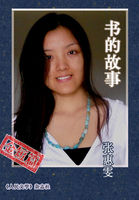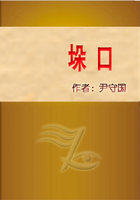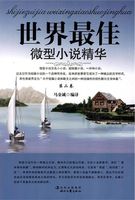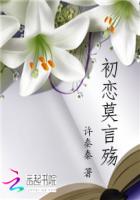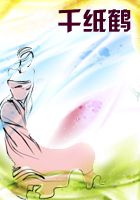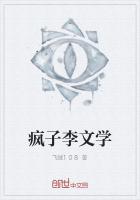MR. Dick and I soon became the best of friends, and very often, when his day's work was done, went out together to fly the great kite. Every day of his life he had a long sitting at the Memorial, which never made the least progress, however hard he laboured, for King Charles the First always strayed into it, sooner or later, and then it was thrown aside, and another one begun. The patience and hope with which he bore these perpetual disappointments, the mild perception he had that there was something wrong about King Charles the First, the feeble efforts he made to keep him out, and the certainty with which he came in, and tumbled the Memorial out of all shape, made a deep impression on me. What Mr. Dick supposed would come of the Memorial, if it were completed; where he thought it was to go, or what he thought it was to do; he knew no more than anybody else, I believe. Nor was it at all necessary that he should trouble himself with such questions, for if anything were certain under the sun, it was certain that the Memorial never would be finished. It was quite an affecting sight, I used to think, to see him with the kite when it was up a great height in the air. What he had told me, in his room, about his belief in its disseminating the statements pasted on it, which were nothing but old leaves of abortive Memorials, might have been a fancy with him sometimes; but not when he was out, looking up at the kite in the sky, and feeling it pull and tug at his hand. He never looked so serene as he did then. I used to fancy, as I sat by him of an evening, on a green slope, and saw him watch the kite high in the quiet air, that it lifted his mind out of its confusion, and bore it (such was my boyish thought) into the skies. As he wound the string in and it came lower and lower down out of the beautiful light, until it fluttered to the ground, and lay there like a dead thing, he seemed to wake gradually out of a dream; and I remember to have seen him take it up, and look about him in a lost way, as if they had both come down together, so that I pitied him with all my heart.
While I advanced in friendship and intimacy with Mr. Dick, I did not go backward in the favour of his staunch friend, my aunt. She took so kindly to me, that, in the course of a few weeks, she shortened my adopted name of Trotwood into Trot; and even encouraged me to hope, that if I went on as I had begun, I might take equal rank in her affections with my sister Betsey Trotwood.
'Trot,'said my aunt one evening, when the backgammon-board was placed as usual for herself and Mr. Dick,'we must not forget your education.'
This was my only subject of anxiety, and I felt quite delighted by her referring to it.
'Should you like to go to school at Canterbury?'said my aunt.
I replied that I should like it very much, as it was so near her.
'Good,'said my aunt.'Should you like to go tomorrow?'
Being already no stranger to the general rapidity of my aunt's evolutions, I was not surprised by the suddenness of the proposal, and said:'Yes.'
'Good,'said my aunt again.'Janet, hire the grey pony and chaise tomorrow morning at ten o'clock, and pack up Master Trotwood's clothes tonight.'
I was greatly elated by these orders; but my heart smote me for my selfishness, when I witnessed their effect on Mr. Dick, who was so low-spirited at the prospect of our separation, and played so ill in confirstTitle, that my aunt, after giving him several admonitory raps on the knuckles with her dice-box, shut up the board, and declined to play with him any more. But, on hearing from my aunt that I should sometimes come over on a Saturday, and that he could sometimes come and see me on a Wednesday, he revived; and vowed to make another kite for those occasions, of proportions greatly surpassing the present one. In the morning he was downhearted again, and would have sustained himself by giving me all the money he had in his possession, gold and silver too, if my aunt had not interposed, and limited the gift to five shillings, which, at his earnest petition, were afterwards increased to ten. We parted at the garden-gate in a most affectionate manner, and Mr. Dick did not go into the house until my aunt had driven me out of sight of it.
My aunt, who was perfectly indifferent to public opinion, drove the grey pony through Dover in a masterly manner; sitting high and stiff like a state coachman, keeping a steady eye upon him wherever he went, and making a point of not letting him have his own way in any respect. When we came into the country road, she permitted him to relax a little, however; and looking at me down in a valley of cushion by her side, asked me whether I was happy?
'Very happy indeed, thank you, aunt,'I said.
She was much gratified; and both her hands being occupied, patted me on the head with her whip.
'Is it a large school, aunt?'I asked.
'Why, I don't know,'said my aunt.'We are going to Mr. Wickfield's first.'
'Does he keep a school?'I asked.
'No, Trot,'said my aunt.'He keeps an office.'
I asked for no more information about Mr. Wickfield, as she offered none, and we conversed on other subjects until we came to Canterbury, where, as it was market-day, my aunt had a great opportunity of insinuating the grey pony among carts, baskets, vegetables, and huckster's goods. The hair-breadth turns and twists we made, drew down upon us a variety of speeches from the people standing about, which were not always complimentary; but my aunt drove on with perfect indifference, and I dare say would have taken her own way with as much coolness through an enemy's country.
At length we stopped before a very old house bulging out over the road; a house with long low lattice-windows bulging out still farther, and beams with carved heads on the ends bulging out too, so that I fancied the whole house was leaning forward, trying to see who was passing on the narrow pavement below. It was quite spotless in its cleanliness. The old-fashioned brass knocker on the low arched door, ornamented with carved garlands of fruit and flowers, twinkled like a star; the two stone steps descending to the door were as white as if they had been covered with fair linen; and all the angles and corners, and carvings and mouldings, and quaint little panes of glass, and quainter little windows, though as old as the hills, were as pure as any snow that ever fell upon the hills.
When the pony-chaise stopped at the door, and my eyes were intent upon the house, I saw a cadaverous face appear at a small window on the ground floor (in a little round tower that formed one side of the house), and quickly disappear. The low arched door then opened, and the face came out. It was quite as cadaverous as it had looked in the window, though in the grain of it there was that tinge of red which is sometimes to be observed in the skins of red-haired people. It belonged to a red-haired person—a youth of fifteen, as I take it now, but looking much older—whose hair was cropped as close as the closest stubble; who had hardly any eyebrows, and no eyelashes, and eyes of a red-brown, so unsheltered and unshaded, that I remember wondering how he went to sleep. He was high-shouldered and bony; dressed in decent black, with a white wisp of a neckcloth; buttoned up to the throat; and had a long, lank, skeleton hand, which particularly attracted my attention, as he stood at the pony's head, rubbing his chin with it, and looking up at us in the chaise.
'Is Mr. Wickfield at home, Uriah Heep?'said my aunt.
'Mr. Wickfield's at home, ma'am,'said Uriah Heep,'if you'll please to walk in there'—pointing with his long hand to the room he meant.
We got out; and leaving him to hold the pony, went into a long low parlour looking towards the street, from the window of which I caught a glimpse, as I went in, of Uriah Heep breathing into the pony's nostrils, and immediately covering them with his hand, as if he were putting some spell upon him. Opposite to the tall old chimney-piece were two portraits: one of a gentleman with grey hair (though not by any means an old man) and black eyebrows, who was looking over some papers tied together with red tape; the other, of a lady, with a very placid and sweet expression of face, who was looking at me.
I believe I was turning about in search of Uriah's picture, when, a door at the farther end of the room opening, a gentleman entered, at sight of whom I turned to the first-mentioned portrait again, to make quite sure that it had not come out of its frame. But it was stationary; and as the gentleman advanced into the light, I saw that he was some years older than when he had had his picture painted.
'Miss Betsey Trotwood,'said the gentleman,'pray walk in. I was engaged for a moment, but you'll excuse my being busy. You know my motive. I have but one in life.'
Miss Betsey thanked him, and we went into his room, which was furnished as an office, with books, papers, tin boxes, and so forth. It looked into a garden, and had an iron safe let into the wall; so immediately over the mantelshelf, that I wondered, as I sat down, how the sweeps got round it when they swept the chimney.
'Well, Miss Trotwood,'said Mr. Wickfield; for I soon found that it was he, and that he was a lawyer, and steward of the estates of a rich gentleman of the county;'what wind blows you here? Not an ill wind, I hope?'
'No,'replied my aunt.'I have not come for any law.'
'That's right, ma'am,'said Mr. Wickfield.'You had better come for anything else.'His hair was quite white now, though his eyebrows were still black. He had a very agreeable face, and, I thought, was handsome. There was a certain richness in his complexion, which I had been long accustomed, under Peggotty's tuition, to connect with port wine; and I fancied it was in his voice too, and referred his growing corpulency to the same cause. He was very cleanly dressed, in a blue coat, striped waistcoat, and nankeen trousers; and his fine frilled shirt and cambric neckcloth looked unusually soft and white, reminding my strolling fancy (I call to mind) of the plumage on the breast of a swan.
'This is my nephew,'said my aunt.
'Wasn't aware you had one, Miss Trotwood,'said Mr. Wickfield.
'My grand-nephew, that is to say,'observed my aunt.
'Wasn't aware you had a grand-nephew, I give you my word,'said Mr. Wickfield.
'I have adopted him,'said my aunt, with a wave of her hand, importing that his knowledge and his ignorance were all one to her,'and I have brought him here, to put to a school where he may be thoroughly well taught, and well treated. Now tell me where that school is, and what it is, and all about it.'
'Before I can advise you properly,'said Mr. Wickfield—'the old question, you know. What's your motive in this?'
'Deuce take the man!'exclaimed my aunt.'Always fishing for motives, when they're on the surface! Why, to make the child happy and useful.'
'It must be a mixed motive, I think,'said Mr. Wickfield, shaking his head and smiling incredulously.
'A mixed fiddlestick,'returned my aunt.'You claim to have one plain motive in all you do yourself. You don't suppose, I hope, that you are the only plain dealer in the world?'
'Ay, but I have only one motive in life, Miss Trotwood,'he rejoined, smiling.'Other people have dozens, scores, hundreds. I have only one. There's the difference. However, that's beside the question. The best school? Whatever the motive, you want the best?'
My aunt nodded assent.
'At the best we have,'said Mr. Wickfield, considering,'your nephew couldn't board just now.'
'But he could board somewhere else, I suppose?'suggested my aunt.
Mr. Wickfield thought I could. After a little discussion, he proposed to take my aunt to the school, that she might see it and judge for herself; also, to take her, with the same object, to two or three houses where he thought I could be boarded. My aunt embracing the proposal, we were all three going out together, when he stopped and said:
'Our little friend here might have some motive, perhaps, for objecting to the arrangements. I think we had better leave him behind?'
My aunt seemed disposed to contest the point; but to facilitate matters I said I would gladly remain behind, if they pleased; and returned into Mr. Wickfield's office, where I sat down again, in the chair I had first occupied, to await their return.
It so happened that this chair was opposite a narrow passage, which ended in the little circular room where I had seen Uriah Heep's pale face looking out of the window. Uriah, having taken the pony to a neighbouring stable, was at work at a desk in this room, which had a brass frame on the top to hang paper upon, and on which the writing he was making a copy of was then hanging. Though his face was towards me, I thought, for some time, the writing being between us, that he could not see me; but looking that way more attentively, it made me uncomfortable to observe that, every now and then, his sleepless eyes would come below the writing, like two red suns, and stealthily stare at me for I dare say a whole minute at a time, during which his pen went, or pretended to go, as cleverly as ever. I made several attempts to get out of their way—such as standing on a chair to look at a map on the other side of the room, and poring over the columns of a Kentish newspaper—but they always attracted me back again; and whenever I looked towards those two red suns, I was sure to find them, either just rising or just setting.
At length, much to my relief, my aunt and Mr. Wickfield came back, after a pretty long absence. They were not so successful as I could have wished; for though the advantages of the school were undeniable, my aunt had not approved of any of the boarding-houses proposed for me.
'It's very unfortunate,'said my aunt.'I don't know what to do, Trot.'
'It does happen unfortunately,'said Mr. Wickfield.'But I'll tell you what you can do, Miss Trotwood.'
'What's that?'inquired my aunt.
'Leave your nephew here, for the present. He's a quiet fellow. He won't disturb me at all. It's a capital house for study. As quiet as a monastery, and almost as roomy. Leave him here.'
My aunt evidently liked the offer, though she was delicate of accepting it. So did I.'Come, Miss Trotwood,'said Mr. Wickfield.'This is the way out of the difficulty. It's only a temporary arrangement, you know. If it don't act well, or don't quite accord with our mutual convenience, he can easily go to the right-about. There will be time to find some better place for him in the meanwhile. You had better determine to leave him here for the present!'
'I am very much obliged to you,'said my aunt;'and so is he, I see; but—'
'Come! I know what you mean,'cried Mr. Wickfield.'You shall not be oppressed by the receipt of favours, Miss Trotwood. You may pay for him, if you like. We won't be hard about terms, but you shall pay if you will.'
'On that understanding,'said my aunt,'though it doesn't lessen the real obligation, I shall be very glad to leave him.'
'Then come and see my little housekeeper,'said Mr. Wickfield.
We accordingly went up a wonderful old staircase; with a balustrade so broad that we might have gone up that, almost as easily; and into a shady old drawing-room, lighted by some three or four of the quaint windows I had looked up at from the street: which had old oak seats in them, that seemed to have come of the same trees as the shining oak floor, and the great beams in the ceiling. It was a prettily furnished room, with a piano and some lively furniture in red and green, and some flowers. It seemed to be all old nooks and corners; and in every nook and corner there was some queer little table, or cupboard, or bookcase, or seat, or something or other, that made me think there was not such another good corner in the room; until I looked at the next one, and found it equal to it, if not better. On everything there was the same air of retirement and cleanliness that marked the house outside.
Mr. Wickfield tapped at a door in a corner of the panelled wall, and a girl of about my own age came quickly out and kissed him. On her face, I saw immediately the placid and sweet expression of the lady whose picture had looked at me downstairs. It seemed to my imagination as if the portrait had grown womanly, and the original remained a child. Although her face was quite bright and happy, there was a tranquillity about it, and about her—a quiet, good, calm spirit—that I never have forgotten; that I shall never forget. This was his little housekeeper, his daughter Agnes, Mr. Wickfield said. When I heard how he said it, and saw how he held her hand, I guessed what the one motive of his life was.
She had a little basket-trifle hanging at her side, with keys in it; and she looked as staid and as discreet a housekeeper as the old house could have. She listened to her father as he told her about me, with a pleasant face; and when he had concluded, proposed to my aunt that we should go upstairs and see my room. We all went together, she before us: and a glorious old room it was, with more oak beams, and diamond panes; and the broad balustrade going all the way up to it.
I cannot call to mind where or when, in my childhood, I had seen a stained glass window in a church. Nor do I recollect its subject. But I know that when I saw her turn round, in the grave light of the old staircase, and wait for us, above, I thought of that window; and I associated something of its tranquil brightness with Agnes Wickfield ever afterwards.
My aunt was as happy as I was, in the arrangement made for me; and we went down to the drawing-room again, well pleased and gratified. As she would not hear of staying to dinner, lest she should by any chance fail to arrive at home with the grey pony before dark; and as I apprehend Mr. Wickfield knew her too well to argue any point with her; some lunch was provided for her there, and Agnes went back to her governess, and Mr. Wickfield to his office. So we were left to take leave of one another without any restraint.
She told me that everything would be arranged for me by Mr. Wickfield, and that I should want for nothing, and gave me the kindest words and the best advice.
'Trot,'said my aunt in conclusion,'be a credit to yourself, to me, and Mr. Dick, and Heaven be with you!'
I was greatly overcome, and could only thank her, again and again, and send my love to Mr. Dick.
'Never,'said my aunt,'be mean in anything; never be false; never be cruel. Avoid those three vices, Trot, and I can always be hopeful of you.'
I promised, as well as I could, that I would not abuse her kindness or forget her admonition.
'The pony's at the door,'said my aunt,'and I am off! Stay here.'With these words she embraced me hastily, and went out of the room, shutting the door after her. At first I was startled by so abrupt a departure, and almost feared I had displeased her; but when I looked into the street, and saw how dejectedly she got into the chaise, and drove away without looking up, I understood her better and did not do her that injustice.
By five o'clock, which was Mr. Wickfield's dinner-hour, I had mustered up my spirits again, and was ready for my knife and fork. The cloth was only laid for us two; but Agnes was waiting in the drawing-room before dinner, went down with her father, and sat opposite to him at table. I doubted whether he could have dined without her.
We did not stay there, after dinner, but came upstairs into the drawing-room again: in one snug corner of which, Agnes set glasses for her father, and a decanter of port wine. I thought he would have missed its usual flavour, if it had been put there for him by any other hands.
There he sat, taking his wine, and taking a good deal of it, for two hours; while Agnes played on the piano, worked, and talked to him and me. He was, for the most part, gay and cheerful with us; but sometimes his eyes rested on her, and he fell into a brooding state, and was silent. She always observed this quickly, I thought, and always roused him with a question or caress. Then he came out of his meditation, and drank more wine.
Agnes made the tea, and presided over it; and the time passed away after it, as after dinner, until she went to bed; when her father took her in his arms and kissed her, and, she being gone, ordered candles in his office. Then I went to bed too.
But in the course of the evening I had rambled down to the door, and a little way along the street, that I might have another peep at the old houses, and the grey Cathedral; and might think of my coming through that old city on my journey, and of my passing the very house I lived in, without knowing it. As I came back, I saw Uriah Heep shutting up the office; and feeling friendly towards everybody, went in and spoke to him, and at parting, gave him my hand. But oh, what a clammy hand his was! as ghostly to the touch as to the sight! I rubbed mine afterwards, to warm it, AND TO RUB HIS OFF.
It was such an uncomfortable hand, that, when I went to my room, it was still cold and wet upon my memory. Leaning out of the window, and seeing one of the faces on the beam-ends looking at me sideways, I fancied it was Uriah Heep got up there somehow, and shut him out in a hurry.


